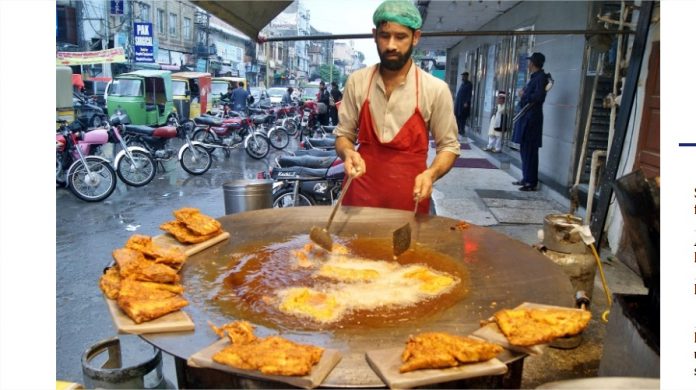The monsoon rains at this time of the year bring with them many infectious diseases. Typhoid fever is one of them.
Typhoid fever is a serious infection caused by the bacterium Salmonella Typhi that can be transmitted through contaminated food and water. Its symptoms include high fever, fatigue, headache, stomach pain, lack of appetite, nausea, weight loss, and confusion. If not treated in time it can be fatal.
Weight loss in typhoid fever happens because of a loss of appetite and nausea. Since it is a prolonged illness and the symptoms persist for long, it can lead to malnutrition. The diet for typhoid includes bland foods that are light on the stomach so they can be digested easily and also strengthen the immune system.
High calorie, carbohydrate rich diet
To counter weight loss and obtain energy, clinical nutritionist Moti Khan from Aga Khan University Hospital says patients should have a high-calorie diet.
This means having foods like bread, boiled rice, cereals, porridge, boiled potatoes, starchy vegetables and bananas. Patients should have frequent small meals to sustain energy, advises Khan. Canola oil and butter are also allowed in moderation.
Protein-rich foods
Foods with high protein content help the body recover faster from illness. This is because proteins build the cells that generate an immune response in the body.
The clinical nutritionist recommends poached egg, clear chicken soup, steamed food like apple sauces, and dairy products like milk and yogurt. Vegetarians can include boiled legumes and cheese to their meals.
Other protein-rich comfort foods include clear vegetable soup, carrot soup, clear daal (pulses), and broth.
Foods with isoflavones (estrogen-like compounds with high protein) also boost immunity, says nutritionist Khan. Sources are soybeans, chickpeas, fava beans, pistachios, peanuts, fruits salads, and nuts.
Staying hydrated
Diarrhea and vomiting in typhoid can lead to severe dehydration. Supplement the body with water, coconut water, fresh fruit juices, and lassi to maintain fluid balance in the body, says Khan.
Patients should have at least eight to 10 glasses of water per day, she added. Have fruits and vegetables with high water content such as watermelon, cantaloupe, cucumber, lettuce, and celery.
What foods to avoid if you have typhoid
Since typhoid can cause stomach discomfort, it’s advisable to avoid gas-causing foods such as cabbage, cauliflower, bell peppers, and beans.
Khan says patients should restrict red meat as it takes longer to digest, as well as any food high in fiber content.
Spicy, deep fried and processed food are completely forbidden, as are ghee, butter, creamy desserts and sweets.
The AKUH nutritionist also advises avoiding multivitamins, raw milk and products made from raw milk and raw and unpeeled vegetables and fruits.
Since there are high chances of typhoid infection after rains so it’s best to avoid food from street vendors and food stored at room temperature, she recommended.
*The nutritionist was speaking during a webinar by the Medical Microbiology and Infectious Diseases Society of Pakistan (MMIDSP) and Sindh Health Care Commission (SHCC) on ‘Typhoid Fever Still a Challenge to Diagnose & Treat’ on Thursday.

















